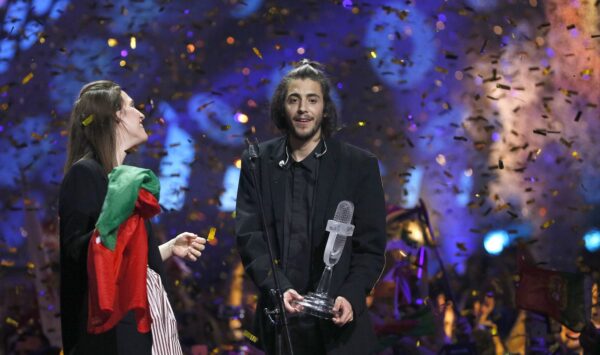Bom dia Europe, this is Lisbon calling! Portugal has been part of the Euroivsion Song Contest since 1964 and has won the event once and successfully hosted our beloved contest once. The Portuguese have enriched the Eurovision Song Contest with their iconic music, traditional sounds and rich musical and cultural heritage.
For decades, the Eurovision Song Contest has been a stage where nations share their culture, music, and heart with the world. And few countries embody this spirit quite like Portugal. Since their debut in 1964, the nation has embarked on a captivating journey, often marked by unique, soulful entries that stand in stark contrast to the typical Eurovision pop spectacle. It’s a tale of perseverance, passion, and, ultimately, a triumphant victory that was a long time coming.
The tradition begins with Festival da Canção, a beloved national institution that has served as the selection process for Portugal’s Eurovision entry for most of its history. This festival is more than just a competition; it’s a celebration of Portuguese music, a showcase of local talent and a window into the country’s artistic soul. It’s through this event that a parade of memorable artists and songs have been chosen to represent the nation on the international stage, carrying with them the hopes of a country deeply proud of its musical heritage.
The early years of Portugal at Eurovision saw a vibrant mix of styles. In 1980, José Cid took to the stage with “Um grande, grande amor,” a song that still resonates with many fans.
https://www.youtube.com/watch?v=nnu4HNTVnco
Two years later, the iconic all-female group Doce brought some pure 80s fun with “Bem bom.” The group was known for their vibrant energy and catchy tunes, making them a standout entry that year.
This era also saw the appearances of Dora, who represented Portugal twice in 1986 and 1988, becoming a familiar face and a fan favorite.
https://www.youtube.com/watch?v=kZXzQtytpIU
In 1989, the duo Da Vinci represented Portugal with a memorable performance, continuing the tradition of sending eclectic and diverse acts. Their song “Conquistador” was a high-energy number that, while not winning, left a lasting impression on viewers. These early entries, while not always achieving top results, were crucial in establishing Portugal’s unique identity at the contest. They were a testament to the country’s commitment to sending authentic music, even if it meant forgoing the more commercial trends of the time.
https://www.youtube.com/watch?v=Ha-uFV8uY4U
The 1990s brought a wave of talented female vocalists who would leave an indelible mark. In 1991, the powerful and emotive Dulce Pontes took to the stage with her hauntingly beautiful ballad, “Lusitana paixão,” showcasing her incredible vocal range and a style deeply rooted in Portuguese tradition. Her performance was a masterclass in vocal artistry.
https://www.youtube.com/watch?v=GKxMDD0B8jY
A few years later, in 1994, Sara Tavares captured hearts with her song “Chamar a Música,” which earned a respectable 8th place and proved that Portugal could achieve success with its heartfelt ballads.
https://www.youtube.com/watch?v=rx_fj-ilZhU
But it was in 1996 that Portugal truly shined, with Lúcia Moniz giving a magical performance with her cheerful song “O meu coração não tem cor.” Her infectious energy and the song’s positive message earned her a 6th place finish, which was, at the time, Portugal’s best-ever result.
https://www.youtube.com/watch?v=04u9XEiPOIw
These female artists not only elevated Portugal’s standing in the contest but also brought a new level of appreciation for the elegance and emotional depth of Portuguese music.
Fast forward to 2018, and we find the nation celebrating its most monumental moment yet. Salvador Sobral’s victory in 2017 with “Amar pelos dois” was a game-changer, and as the host nation in 2018, Portugal got to bask in the glory of its first-ever win. This victory was a triumph for authenticity and artistic integrity. “Amar pelos dois” was a quiet, jazz-inspired ballad that broke the mold and proved that a simple, genuine performance could captivate a continent.
https://www.youtube.com/watch?v=Qotooj7ODCM
The post-victory years have seen Portugal continue its tradition of sending unique and compelling artists. In 2022, Maro took to the stage with her intimate and soulful song “Saudade, Saudade,” a powerful tribute to her late grandmother. Accompanied by a group of backing vocalists, her performance was a moving and poignant moment that resonated with audiences. Her 9th place finish was another fantastic result for the country.
https://www.youtube.com/watch?v=mZtbD47u6yI
More recently, the torch has been passed to a new generation of artists. In 2024, Iolanda captivated the audience with “Grito,” a song that was both powerful and emotional. Iolanda placed 10th at the Eurovision Song Contest in Malmo, Sweden.
https://www.youtube.com/watch?v=OZn4-H6JvKU
Come 2025, the band NAPA represented Portugal, continuing the tradition of bringing fresh and diverse sounds to the Eurovision stage. The anticipation for their performance is high, as they are poised to write the next chapter in Portugal’s Eurovision saga. The 2025 Portuguese Eurovision entry has gone viral on Spotify and has become a massive global hit!
https://www.youtube.com/watch?v=waInyqBwSo0
In conclusion, Portugal’s journey at the Eurovision Song Contest is a beautiful tapestry woven with threads of tradition, emotion, and an unwavering commitment to musical honesty. From the early charm of Doce and José Cid to the soulful ballads of Dulce Pontes and Sara Tavares, and culminating in the historic victory of Salvador Sobral, Portugal has consistently used this platform to share its rich cultural heritage. The Festival da Canção continues to be the heart of this journey, ensuring that each entry, past and present, carries a piece of Portugal’s soul to the world.




